1897: The British Zollverein
September 19, 2023
By AHNZ
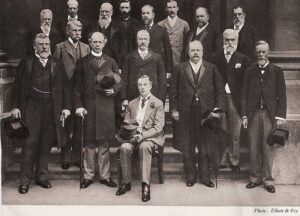
The Victorian British Empire in Phase A was confident, outgoing, expantionist, and certain. Phase A Britain (1837-70) enjoyed a near-monopoly on the Industrial Revolution as the premier trading nation and was banker to the world. Our Empire shifted out of this Achieved Identity into the Ascribed Identity of Phase B (1870-01.) A person, or a nation, has an Achived Identity when he authentically knows who he is what where he belongs; It is discovered not created. A prescribed identity is an act of will power that often involves dressing up (LARP¹) and adopting over-emphasised caricaturisms to create an avowed identity. Phase B Britain was losing that self-identity because long-standing cherished religious convictions were being chipped away by Darwinism and replaced by a new and resentful ‘Progressive’ and ‘Working Class’ egged along by Marxism. In Phase A we penetrated the mysteries of science and the geography of the world, founding colonies like New Zealand. In Phase B those colonies were slipping away from Britain and other powers were rising. The grandiose replacement identity to being British was recognised and called Jingoism.
Top Jingo in 1897 was Joseph Chamberlain (image, left.) He knew first hand that the new British persona was as fake as the public image he had created for himself. As Opposition Leader and then Secretary of State for the Colonies he knew how precarious the global position had become. It wasn’t just Britian’s Industrial Revolution anymore but had been spread world-wide with Germany and the United States presenting strong competition for being the leading edge. The British Navy, supposed to rule the waves, was making mistakes and becoming weak. In 5-10 years time there would be public alarm and a fervent arms race to build battleships faster than the continental nations with Germany the main one to beat. Joe could see these things coming down the pipeline and wanted to do something about it. Queen Victoria’s Diamond Jubilee was Chamberlain’s chance to showcase his solution to the assembled representatives of the British Colonies. He proposed Greater Britain.
“The 1897 Colonial Conference was a conference between the Secretary of State for the Colonies and the 11 self-governing colonies of the British Empire…Delegates were sent to the conference by Canada, Newfoundland Colony, New Zealand the Australian self-governing colonies of New South Wales, Queensland, South Australia, Tasmania, Victoria and Western Australia, and the South African colonies of Cape Colony and the Colony of Natal.” – Wiki
“Imperial federation remained a distant dream, with the formal conferences producing nothing more than a vague set of good intentions.” – p296, King of God’s Own, Brooking (2013)
“…we can not even if we wished imitate exactly the German Zollverein. We are not conterminous countries we are countries as I have said separated by thousands of miles in some cases and the circumstances of our different countries vary so considerably….To organise an empire one may almost say to create an empire greater and more potent for peace and the civilisation of the world than any that history has ever known cheers that is a dream if you like but a dream of which no man need be ashamed. We appreciate and we cordially respond to the notes the stirring notes of loyalty and affection that have been evoked from our colonies when the great mother country has appeared to be in danger.” – The First Step to Federation, Chamberlain (1896)
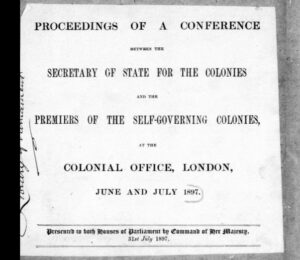 Tough Crowd
Tough Crowd
Victoria’s Jubilee almost exclusively focused on celebrating the Empire as, after all, it needed a pick-me-up. All the colonial world leaders were there so here was an opportunity to call for a Conference of Colonial Premiers and this ran from 24 June–8 July 1897 at the Colonial Office, Downing Street. He had to. Joe’s attempt to call the meeting for February of the same year was turned down so this was a reboot! New Zealand was represented by Prime Minister Richard Seddon.
It would not be an easy pitch meeting for Chamberlain to keep the gang together and, in fact, more together than ever before. The Boss of each colony each had power in their own right having done away with Governors who were loyal to and selected by Britain. We had long since reduced our Governors to pretentious figureheads used as autograph-signing automatons. Politicians were out for themselves and only in it for the Queen so far her Empire remained a popular brand to the voters.
What the Colonials had wanted for decades was to adjust their existing most-favoured-nation trade status with Britain so that it did not have to include German and Belgian trade too. This old treaty arrangement made for us by Britain must have been bringing ordinary New Zealand consumers lots of useful imports but what Seddon cared about was getting his hands on the customs duty! He also cared about negotiating his own international trade deals but the existing rules were binding him.
Seddon (giving Prime Minister George Reid the side-eye?) accused New South Wales as being “the dumping ground of all the foreign made rubbish throughout the world” and blamed it for spilling over into the other colonies!
These nations wanted trade protectionism so that they could build their own domestic manufacturing bases. Colonials noticed the “huge increase” in US-British trade and didn’t want to be excluded anymore. Seddon wanted to be able to trade with the USA and so did the Canadian representative, Prime Minister Laurier. The Canadians, in particular, had just had the 1896 Klondike Gold Rush break out so this was no time to have a blocked trade pipeline.
The Australians were not keen at all. They were already inching toward Federation as a single country and that was quite enough to adjust to without being stretched into an even bigger conglomeration.
The exceptions to this resistance were Seddon and Tasmania’s Prime Minister Edward Braddon. Yet, Seddon had been as cool as any of them just weeks before. It seemed that Chamberlain had pre-lubricated Seddon and probably Braddon as well in order to have a chance of pulling off the Zollverein. But first, what was this Greater Britain idea all about?
“It may be that the time has come, and if not I believe it will come, when the Colonies will desire to substitute for the slight relationship which at present exists a true partnership, and in that case they will want their share in the management of the Empire which we like to think is as much theirs as it is ours, ” – Chamberlain, Proceedings (1897)
“We are ready to manage the Empire for you at any time, so long as you pay the piper.” – Reid, Proceedings; Little (2023)
“I am not by any means in accord with my colleagues in Australia. I should like, with Sir Wilfrid Laurier and Mr. Seddon, to see some actual move made in the direction of those closer relations…” – Braddon, Proceedings; ;Little (2023)
“Laurier hailed from a tradition of French-Canadian political activists who sought to loosen and potentially sever the connection between Canada and Britain. The desire to disconnect Canada from its colonial master was heightened in 1897 when Britain began tightening its colonial network – in part, via free trade agreements with its colonies – in order to increase British power in light of rising US and German power…Just as the British were seeking to more tightly centralize their empire by establishing a free trade zone between Britain and its colonies, so too Laurier’s counterattempt to establish free trade with the United States served as a means to block this British effort.” – Making North America, James Thompson (2014)
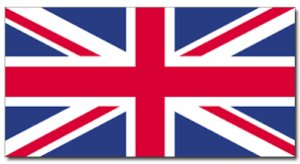 Greater Britain
Greater Britain
One of New Zealand’s founders, Robert Godley, had been perfectly explicit in speaking for the colonies in saying they were not to “break up the British Empire but to save it…” Ref. 1849: On The Government of Colonies, AHNZ
Earlier still that same decade Thomas Macaulay (Lord Macaulay) had written of Britain expiring in ruins at a future date with “some traveler from New Zealand” (a Maori, he must mean) standing on a broken arch of London Bridge figuring upon what must have been. This idea became a meme and the meme became an engraving in 1872. It was all still current in 1897 when Seddon, upon visiting London, quipped that Macaulay had it wrong: “If the Empire was to fall, the New Zealander would fall too.”
Chamberlain had also been summoning Macaulay’s image in his speech that year. The time had come. The need arrived. This long marinaded idea of joining together had only for the stakeholders to act. Germany united her empire this way and become a powerful global force. Could Britain? Would Britain?
Chamberlain proposed a Federal Council as a political version of what already existed in the Privy Council that was open to all the top legal minds to be promoted no matter which colony. For the British world-state it was proposed a standard military with standard equipment and standard strategy and interchangeable military duties. Training could take place centrally for all the world. Joe dangled the idea of giving up the trade deal Britain enjoyed with Germany and Belgium though it was bigger than the trade of all the colonies combined, he said. He promoted a Pacific telegraph cable, pan-British penny postage, and an empire-wide standard for alien immigration.
It was, as Chamberlain tried to impress on everyone without giving away how precarious the Empire was becoming, a way to save Britian from the world and the world for Britain. Without that what was to become of the split up colonies trying to go it alone in the global economy with potentially malicious giants growing up looking for conquest?
It’s a wonder the Premiers showed up at all. Seddon and Braddon, if they had been bought, stayed bought and backed Joe up. But it was no use. They had only really come because they were in town anyway and for the exchange of a glittering prize they wanted. Against the usual rules, everyone was made a Privy Councillor by Queen Victoria herself in person. Nice thing to have in the showbag for attending a conference.
…if Greater Britain remains united, no empire in the world can ever surpass it in area, in population, in wealth, or in the diversity of its resources…I do not ask you to anticipate with Lord Macaulay the time when the New Zealander will come here to gaze upon the ruins of a great dead city. There are in our present condition no visible signs of decreptitude and decay.” – Chamberlain, The True Conception of Empire. speech, March 1897
“Chamberlain meant to act….make the empire an economic unit…an imperial zollverin, with internal free trade and tariffs against foreigners. As Britain declined, the Empire would expand to fill its role and, as a ‘world state,’ contest with Germany and the U.S.A. to control the future.” – p257, Sinclair (1965)
Manufacturing Consent

“You remember in our private conversation before I left, you told me you would not have a…” knighthood, wrote Pember Reeves to Seddon in May 1896. This was the year this Ultra-Left Professor Frink of the Liberals became too much of a Fabian Socialist liability to have around so resigned from New Zealand politics to be Agent-General in London. At once he started wheeling and dealing to get Seddon Honors but knighthood would not do; He wanted a Privy Councillorship! Ref. 1896: Reeves Resigns, AHNZ
“As to the P.C.ship, I am by no means hopeless- Chamberlain wants to rally the Colonies to him…If you could do anything to bak him up in the Imperial Zolleverein question that could establish a strong claim.” p87 Seddon (1968)
According to Sinclair (1965) even the ex-Governor of New Zealand, Onslow, was dead against these dolling out of Privy Councilorships. Especially when it involved skipping over a knighthood first. But Seddon wanted only the best. Especially since it was just going to be a KCMG knighthood which wasn’t nearly special enough.
While pretending not to have any influence on the selection of the next Governor General (Ranfurly, as it turned out,) Reeves was jacking up a “private and unofficial consultation” between Chamberlain and Seddon that would be “a great concession” “never been granted.” The men were chipping away at Queen Victoria’s powers and prerogatives and responsibilities to New Zealand behind her back. They were dealing in favors for favors and pretending outwardly to uphold a British system they were in fact undermining secretly from within². Ref. Seddon (1968)
Reeves wrote later to say that Chamberlain was “very anxious that no whisper of the matter should get abroad as in that care he would be very angrily attacked by his Party here for surrendering a portion of the Queen’s prerogative…remain an absolute secret.” It was Reeves, according to himself, who suggested dolling out Privy Councillorships to all the Premiers to “honor” them (ie to get them to go along) and Joe seemed “a good deal struck with the notion.” So, again, here they were breaking rules and cheapening titles by making special bribes and exceptions of them. This must be part of how Seddon’s sidling up to Joe was organised. Meeting Queen Victoria and getting an honor from her is a big prize.
“Thus, for the first time, the New Zealand Government had a say in the choice of a governor- a small addition to its powers of self-government.” wrote Sinclair. Reeves had, in a cryptic Yes-Minister-speak proposed Ranfurly. The politicians had even negotiated a higher salary for the new Gov as part of the wheeling and dealing.
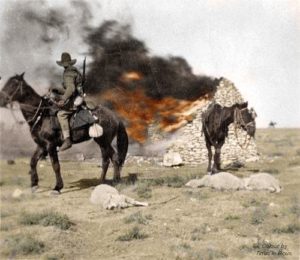 Chamberlain had apparently purchased the services of a vigorous professional campaigner in Seddon but it didn’t win him the Zollverein.
Chamberlain had apparently purchased the services of a vigorous professional campaigner in Seddon but it didn’t win him the Zollverein.
Historians are left to wonder what Chamberlain did for the Tasmanian. Or, what the other Premiers were offered but refused?
Zollverein was done. However, the Secretary of State for the Colonies had another trick up his sleeve for uniting the colonies that was already well along on its way. Chamberlain was perhaps the man most responsible for the Second South African War. Ref. 1899: Boer War, AHNZ
As before, Canada and Australia were not too keen but Seddon’s favors were on sale. In exchange for New Zealander’s lives and lots of trade to feed the war effort we fought Chamberlain’s war. However, now we have the history we know that Seddon quibbled about how much export trade his fiefdom was awarded as the quid pro quo for making toy soldiers of Boers and Kiwi Rough Riders.
—
1 LARP- Live Action Role-Play
2 Reeves predecessor as Agent General who had attended the first ever Colonial Conference, former Speaker of the house Francis Dillon Bell was also up for further honors. He had gone home to New Zealand soon to die. Reeves had Chamberlain put a stop to whatever high honor Bell was due for due to the Liberal Ministry’s opposition. More string pulling! Ref. p258, Sinclair (1965)
Image ref. Imperial Conference of 1907 showing the heads of the various colonies with their Secretary of State for the Colonies Joseph Chamberlain (seated.) Elliot and Fry
Ref. Proceedings of a conference between the secretary of state for the colonies and the premiers of the self-governing colonies at the Colonial Office, London, June and July 1897. The Internet Archive
Ref. The First Step to Federation, Chamberlain speech, Canada Club Dinner (March 1896,) Foreign and Colonial Speeches, Chamberlain (1897, ) Google Books
Ref. William Pember Reeves – New Zealand Fabian, Keith Sinclair (1965)
Ref. The Seddons, T Seddon (1968)
Ref. William Pember Reeves, Keith Sinclair (1965)
 Like Comment Share
Like Comment Share

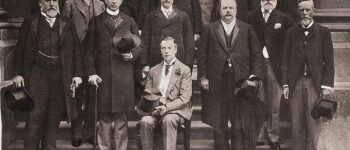




One thought on "1897: The British Zollverein"